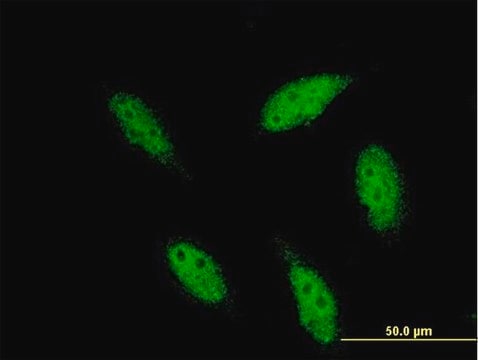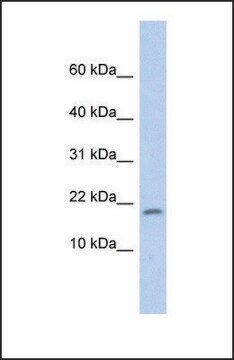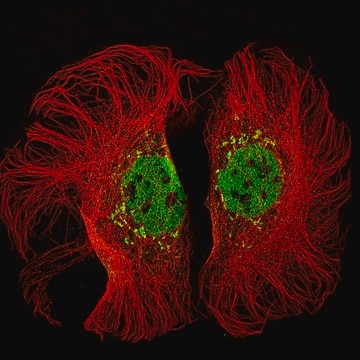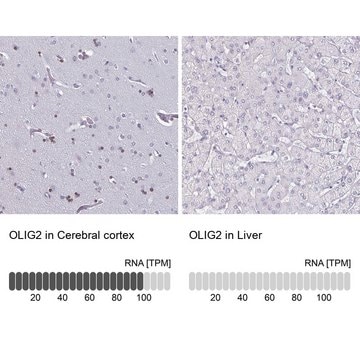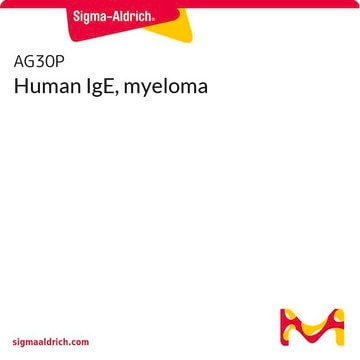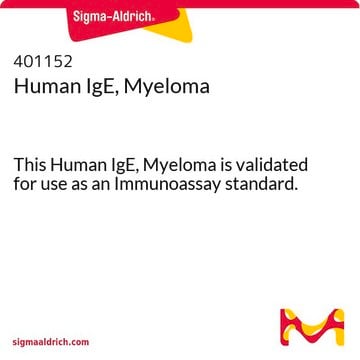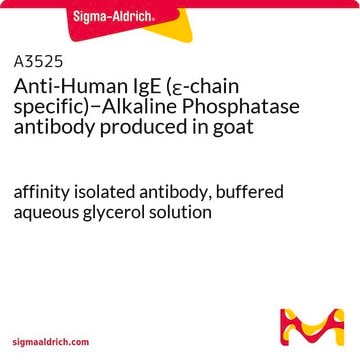SAB4200741
Anti-Human IgE antibody, Mouse monoclonal
clone GE-1, purified from hybridoma cell culture
Sinónimos:
Anti-Immunoglubulin E
About This Item
Productos recomendados
biological source
mouse
Quality Level
antibody form
purified from hybridoma cell culture
antibody product type
primary antibodies
clone
GE-1, monoclonal
form
buffered aqueous solution
species reactivity
human
concentration
~1.0 mg/mL
technique(s)
ELISA: 0.15-0.3 μg/mL using 1 μg/mL Human IgE myeloma for coating
immunoblotting: suitable
immunoprecipitation (IP): 1-2 μg/test using Human IgE myeloma
isotype
IgG2b
shipped in
dry ice
storage temp.
−20°C
target post-translational modification
unmodified
General description
Immunogen
Application
Biochem/physiol Actions
Physical form
¿No encuentra el producto adecuado?
Pruebe nuestro Herramienta de selección de productos.
Storage Class
10 - Combustible liquids
flash_point_f
Not applicable
flash_point_c
Not applicable
Certificados de análisis (COA)
Busque Certificados de análisis (COA) introduciendo el número de lote del producto. Los números de lote se encuentran en la etiqueta del producto después de las palabras «Lot» o «Batch»
¿Ya tiene este producto?
Encuentre la documentación para los productos que ha comprado recientemente en la Biblioteca de documentos.
Los clientes también vieron
Nuestro equipo de científicos tiene experiencia en todas las áreas de investigación: Ciencias de la vida, Ciencia de los materiales, Síntesis química, Cromatografía, Analítica y muchas otras.
Póngase en contacto con el Servicio técnico